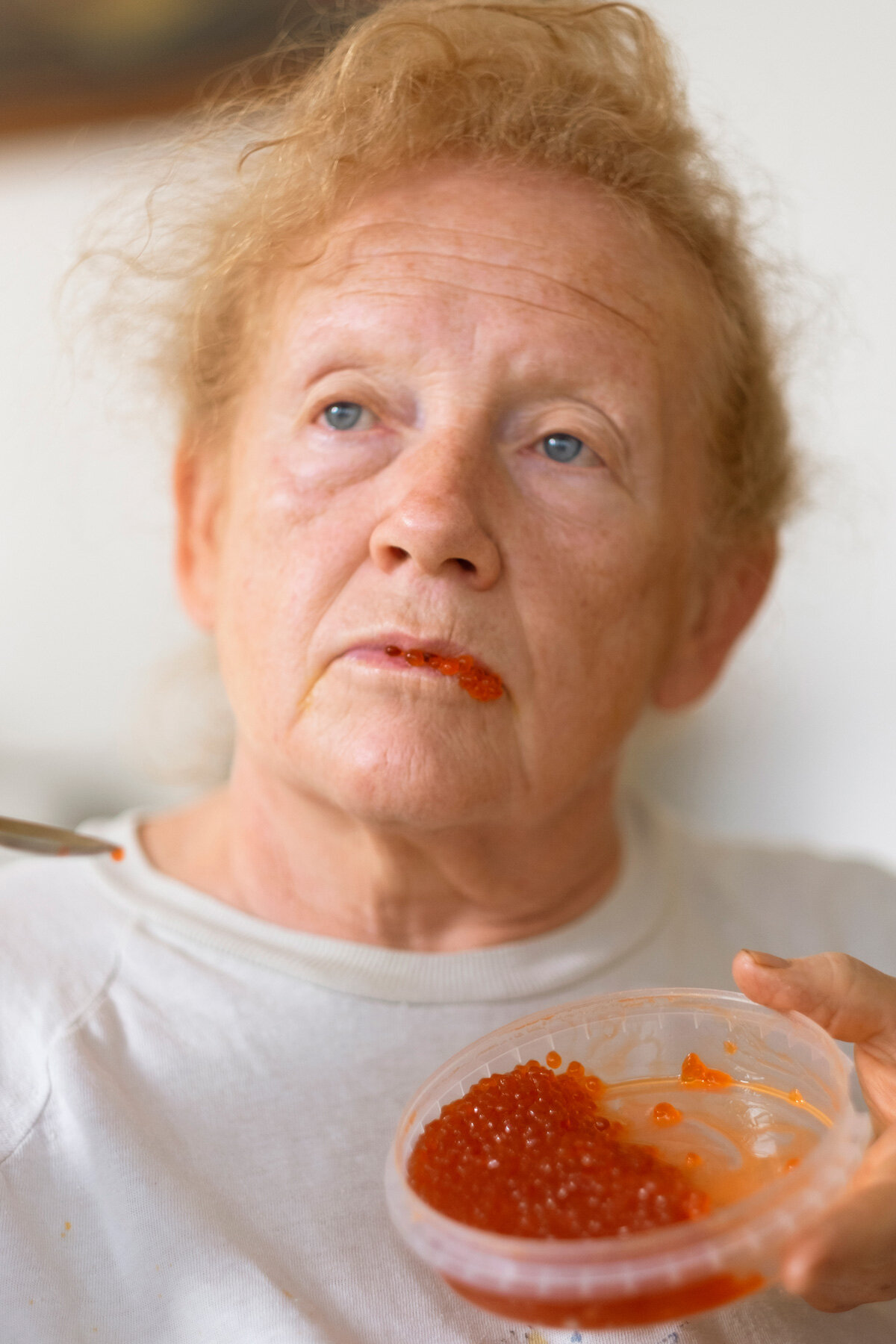
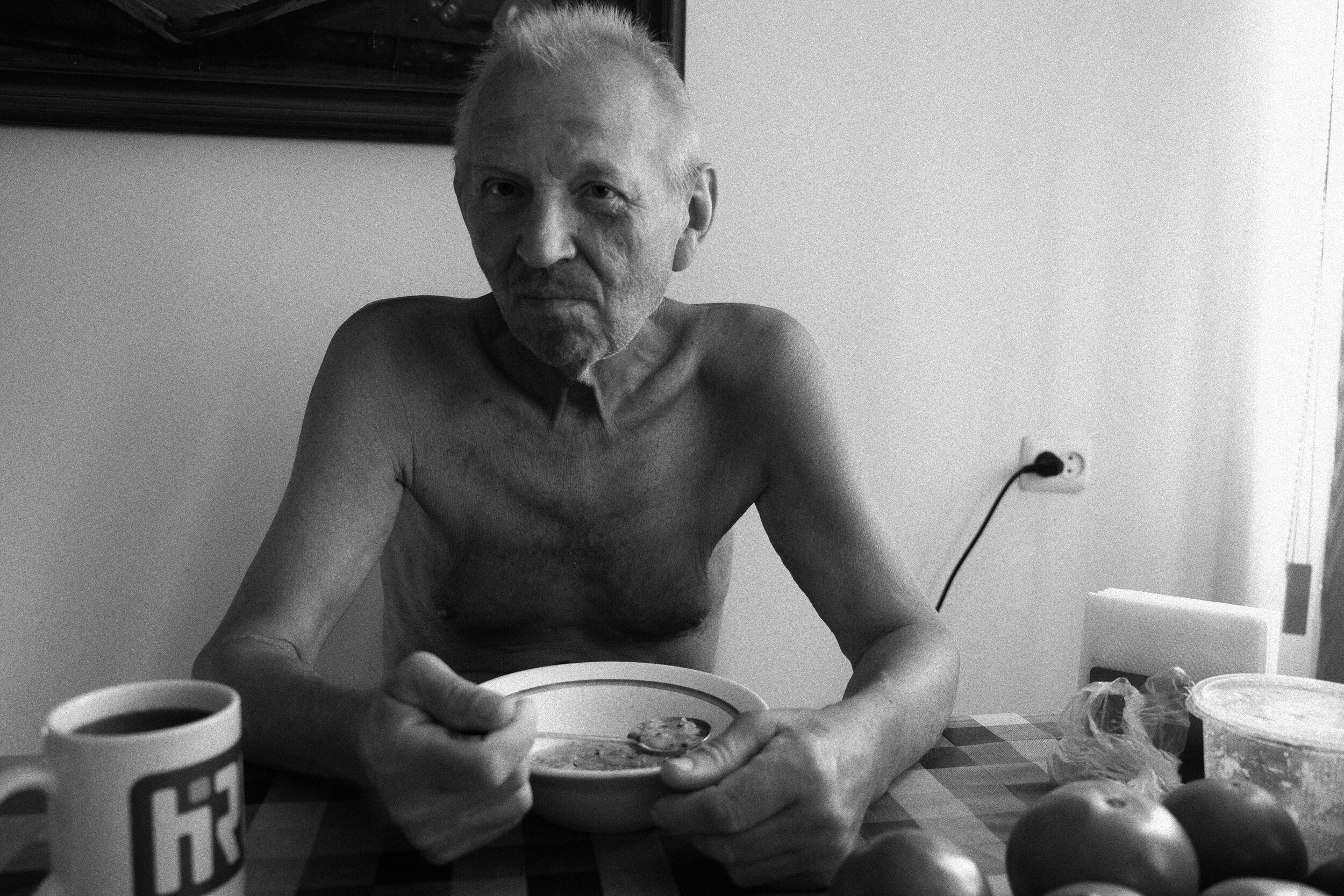
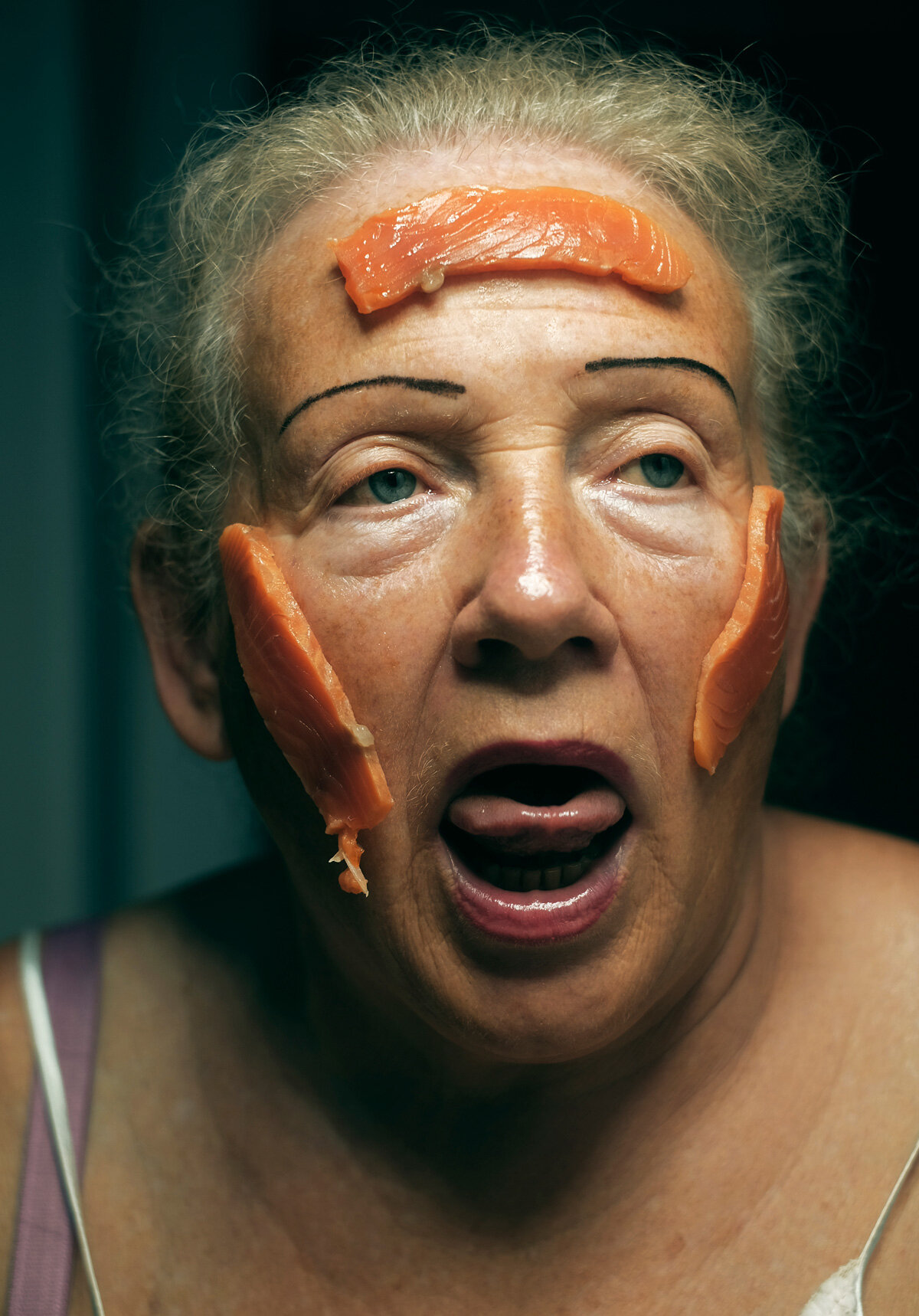
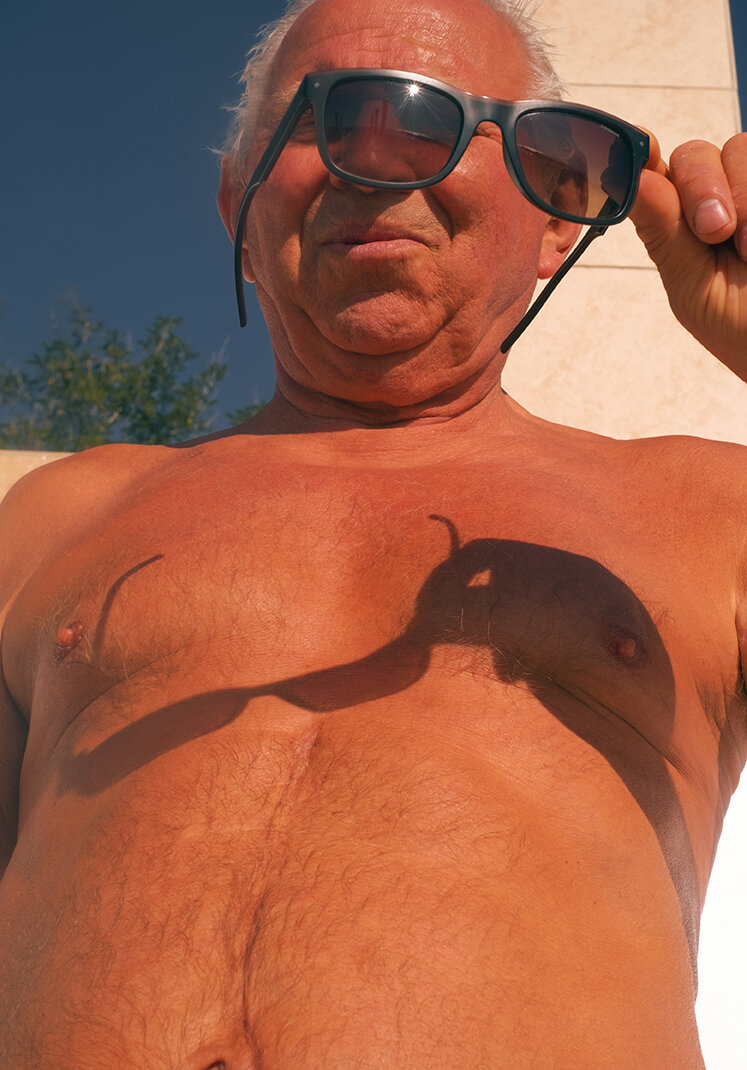
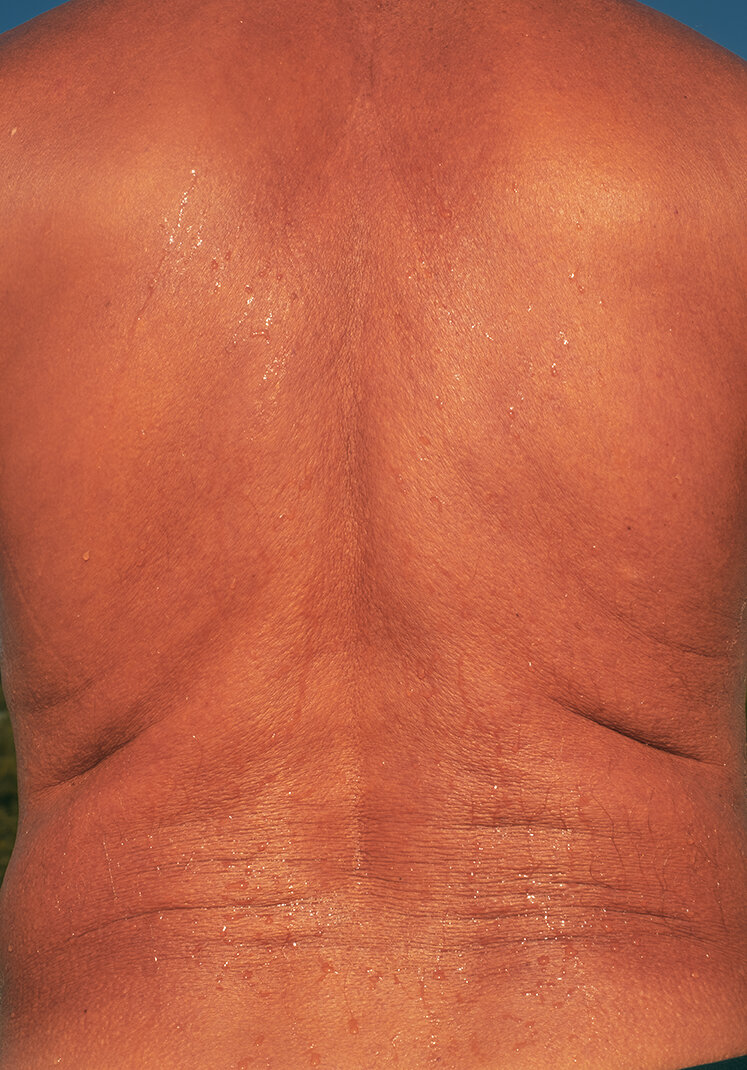
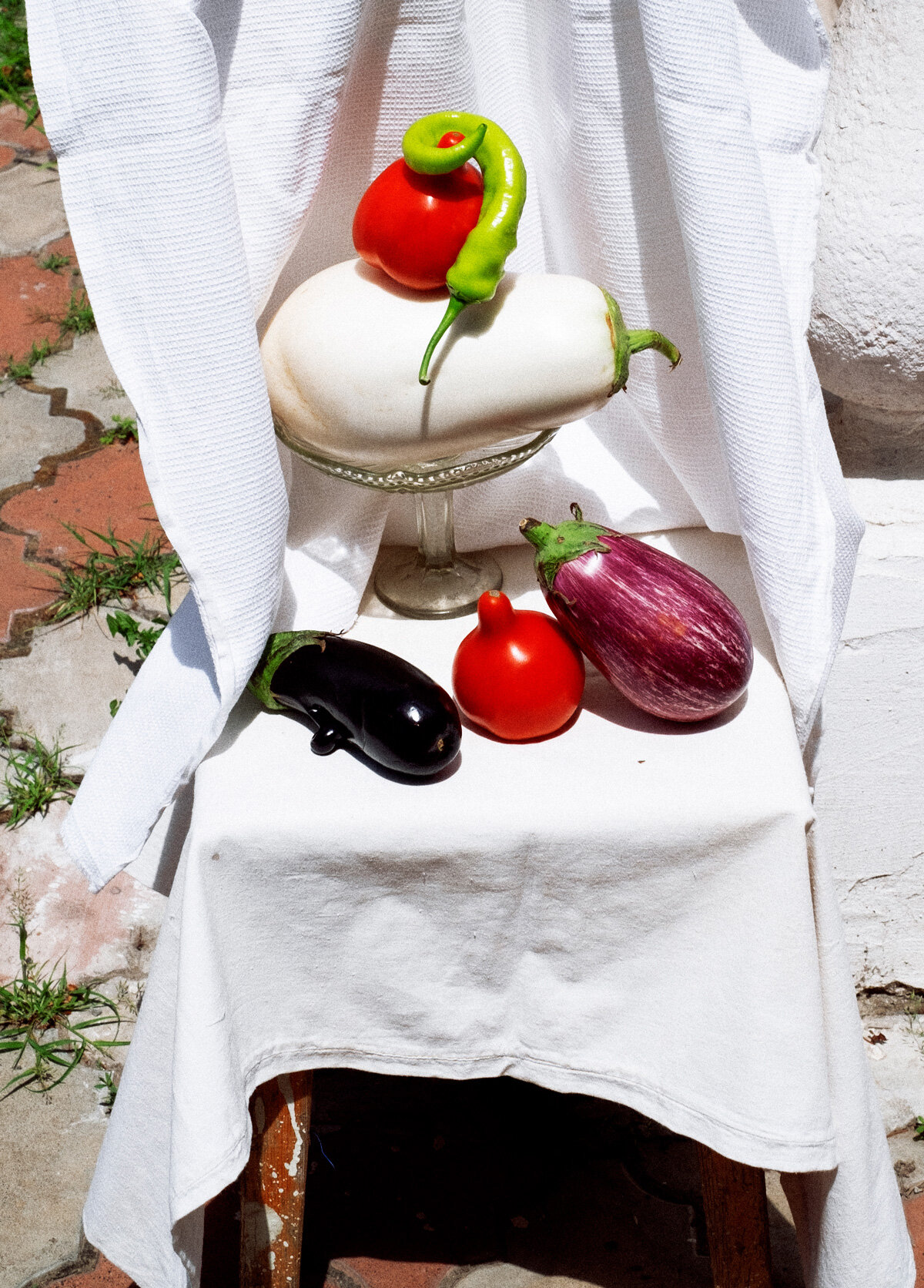
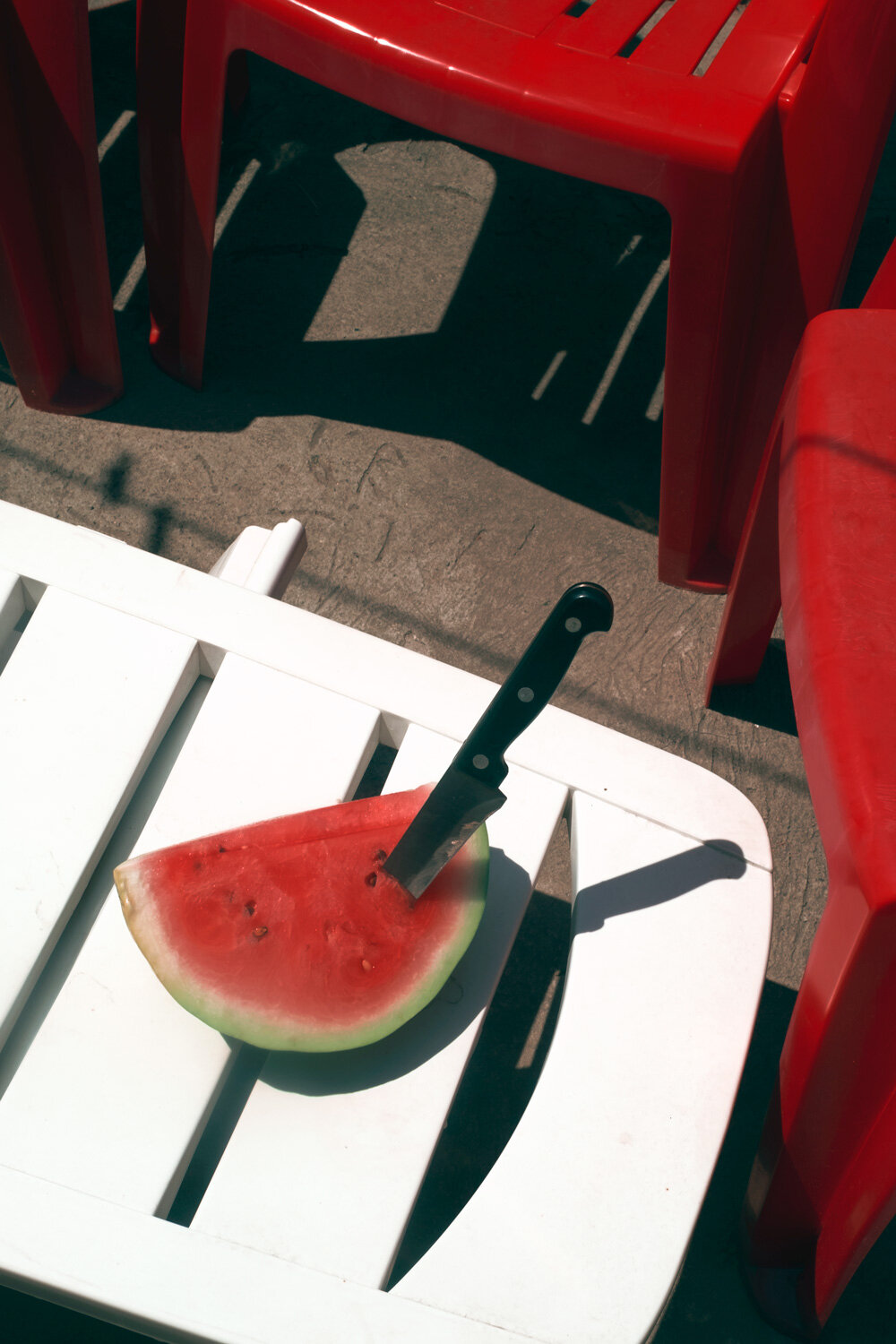
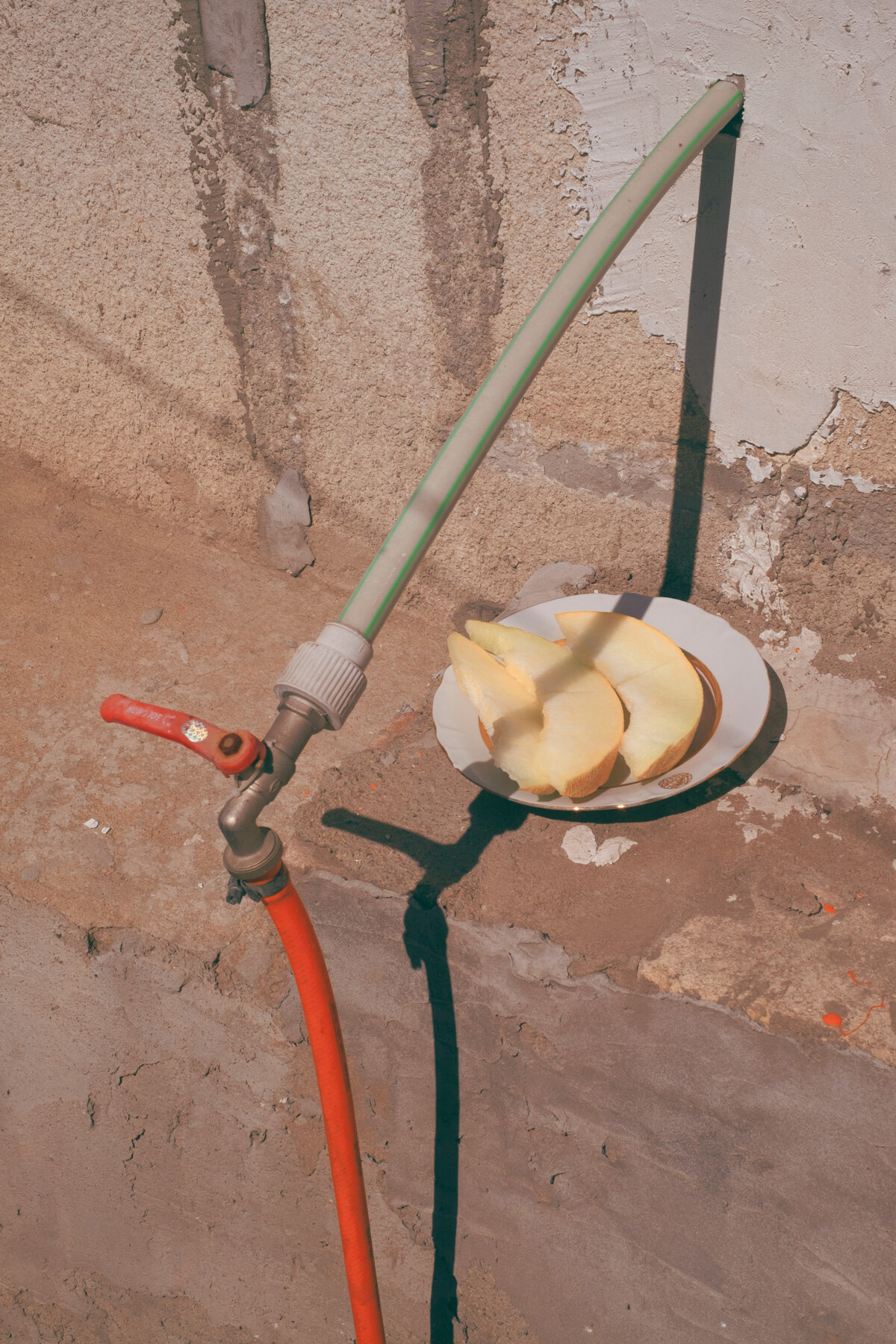
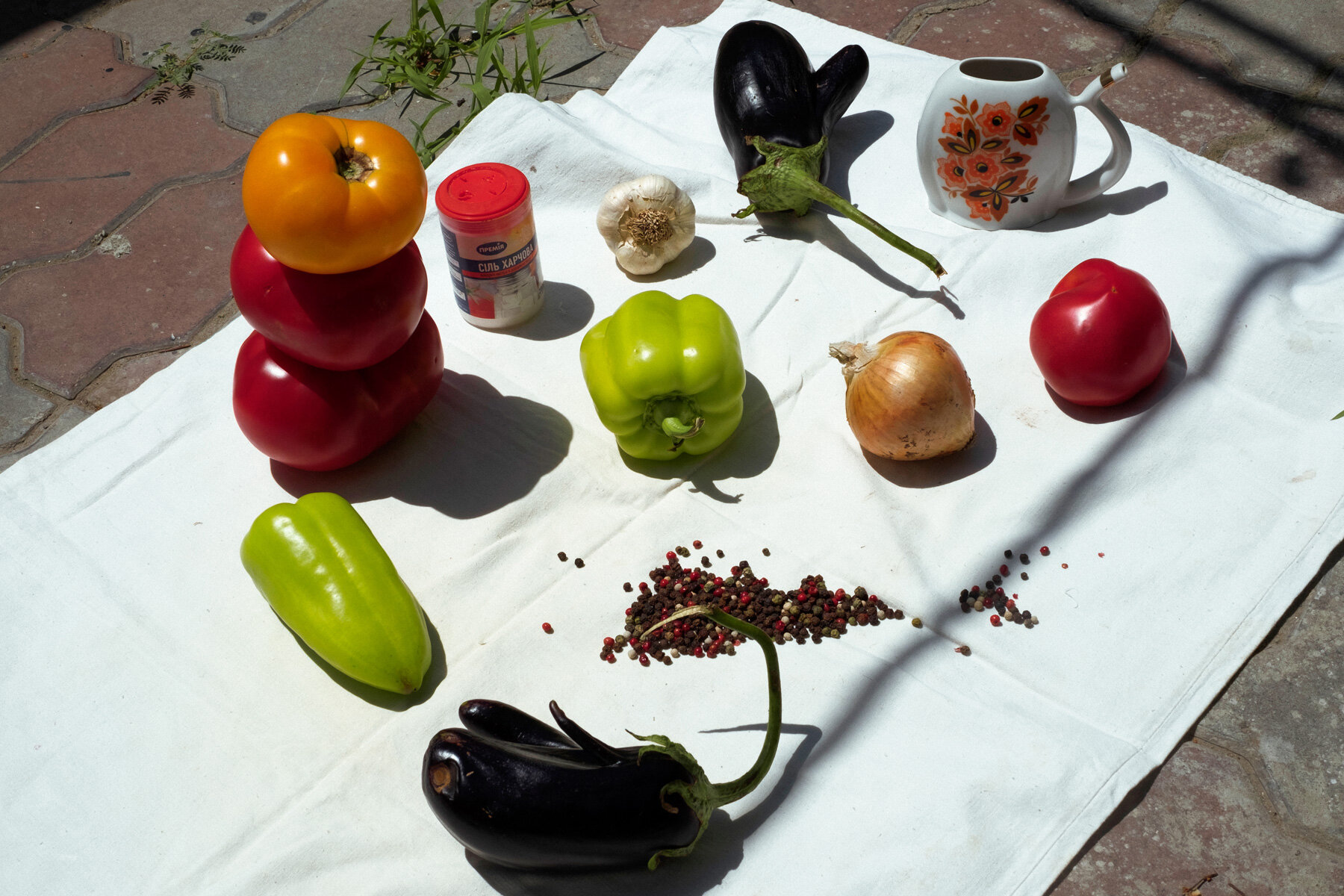
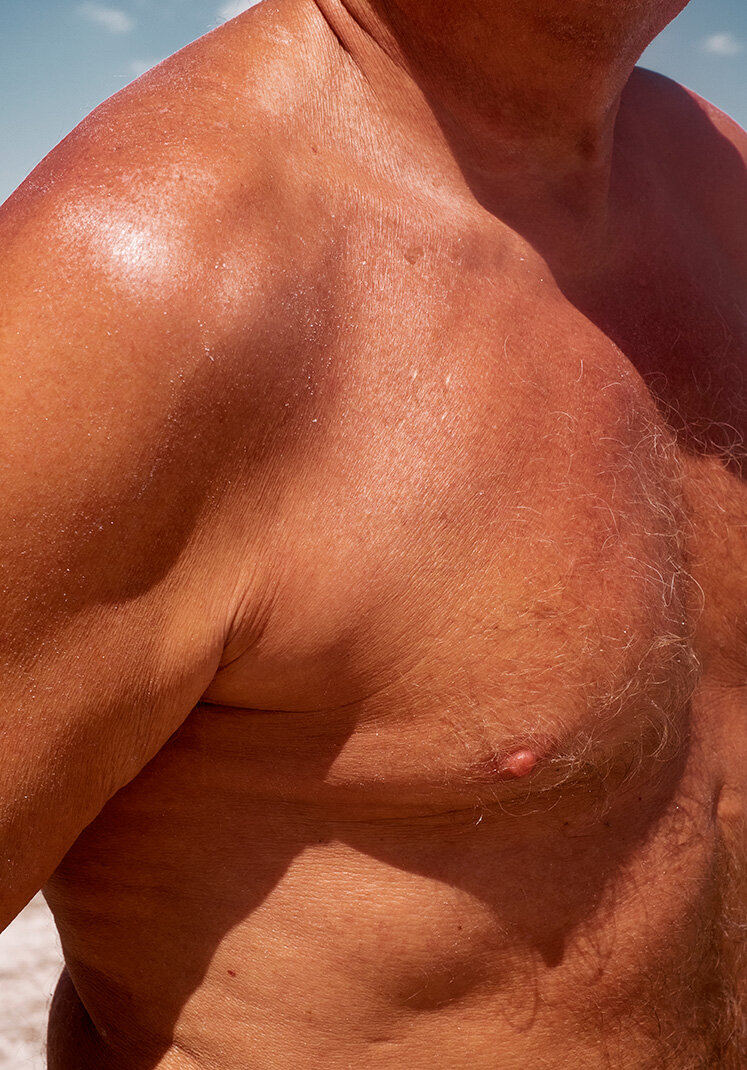
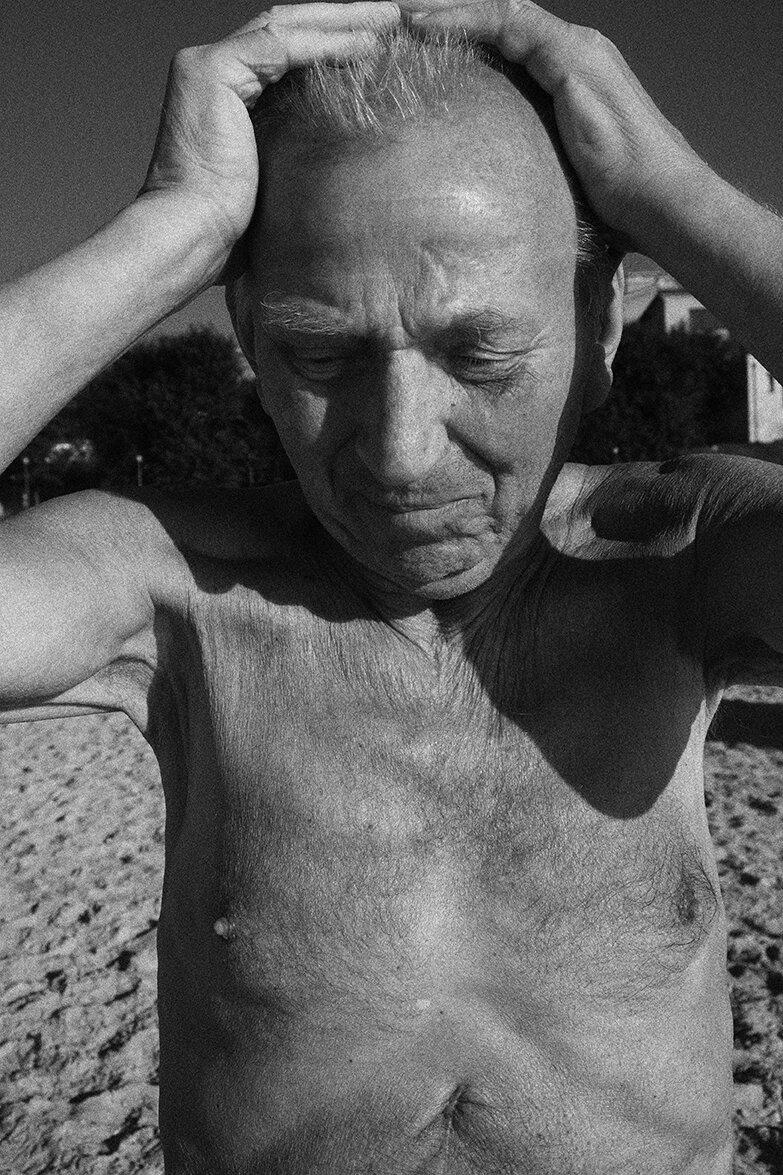
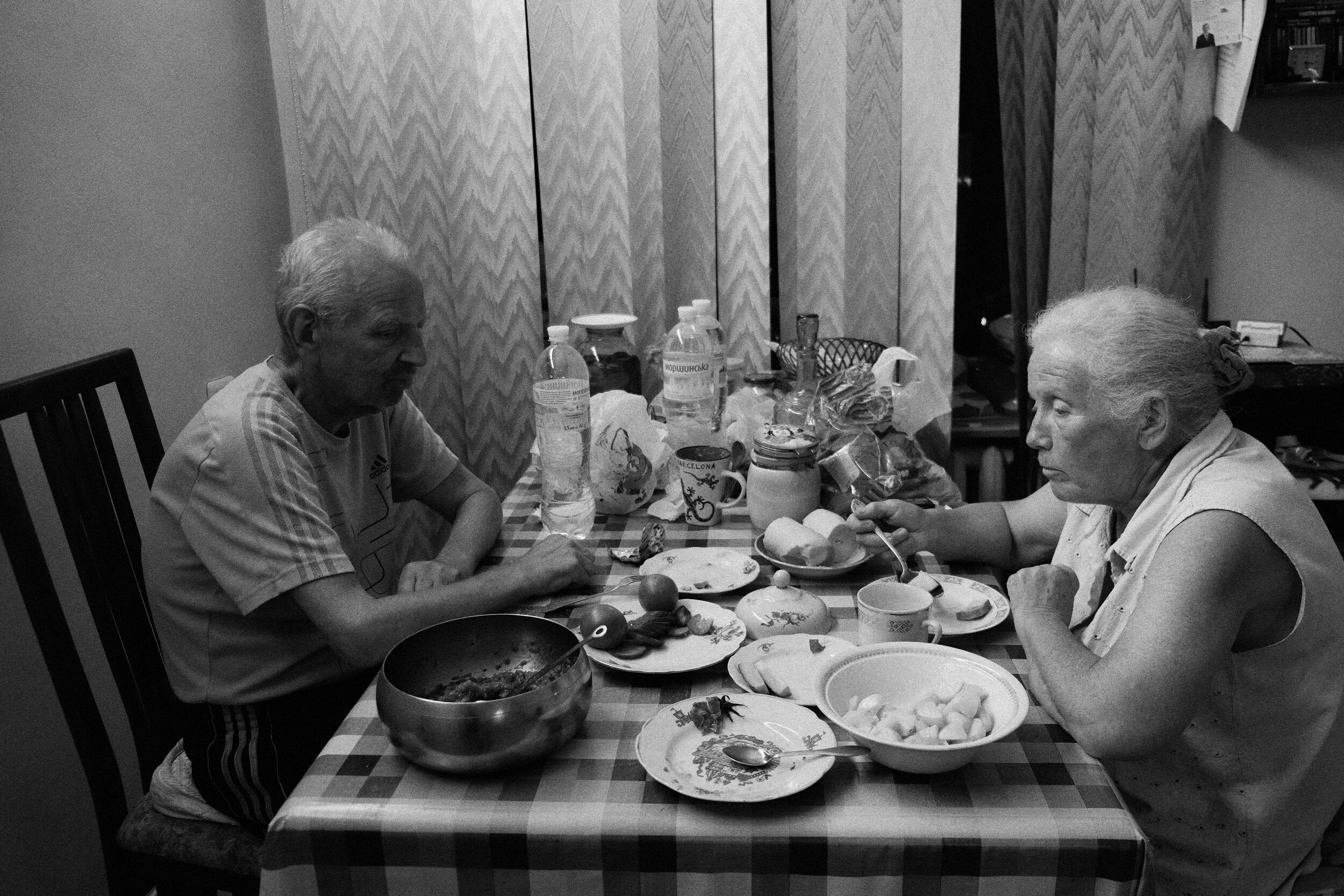
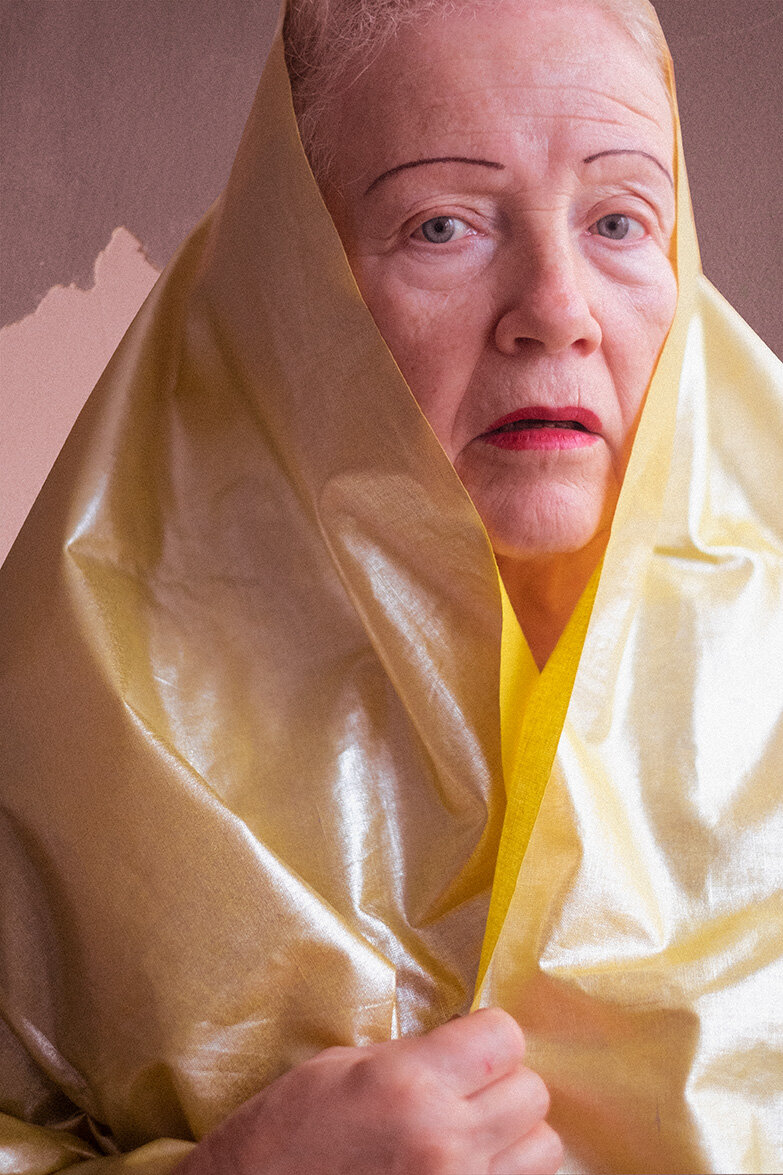
MEAT, FISH AND AUBERGINE CAVIAR an interview with ALEX BLANCO
Alex Blanco (b. 1988, Ukraine/Brazil) is a photographer, who currently resides in The Hague (NL). She has an MA Degree in Film & Photographic studies from the University of Leiden and she has also completed a semester of Photography as an elective course at Royal Academy of Art, the Hague. Interested in creating deeply personal projects, sometimes even uncomfortable for the viewer, Blanco makes sure that each of her series resonates with her past and directly interacts with her present. Her fashion and fine art photography projects are highly intuitive and self-reflective.
Her latest series ‘Meat, Fish and Aubergine Caviar’, is a project about her parents’ life in Odessa, Ukraine. The city on the Black Sea coast that traditionally has had everything in abundance: fish, sun, exposed flesh and of course... delicious aubergine caviar. Odessa is Blanco’s city of her childhood memories which she left when she was 16 years old but keeps coming back every summer to enjoy the city to the fullest.
In an interview with GUP, Blanco reveals the intriguing details behind her project and Odessa.
In ‘Meat, Fish and Aubergine Caviar’ you photograph your parents in a very direct and intimate way. Why did you decide to include your parents in the first place and how did you experience the process of photographing them?
It all started in 2016, when my father got sick and was admitted to the Intensive Care Unit, I had to travel to Odessa to take care of him. I started photographing him in the hospital in order to create an extra layer between me and him. It was hard for me to see the situation as a daughter, so I decided to take a position of a photographer and observe the recovery of my father through the shield of a photographic lens. I continued the project until 2019, coming to Odessa several times a year, until my father was fully recovered and could go back to his regular routine - exercising on the beach, doing groceries at local open-air markets, indulging in cooking and in eating with my mother.
I never had a picture-perfect relationship with my parents, so this project was definitely therapeutic. It made me overcome the strong feelings of shame, stun and denial of my family, my country, my city and my origins and embrace responsibility, acceptance and understanding. This project is about a city and a family, but also, it’s a self-portrait of someone wracked by childhood traumas, someone who prefers to live in the illusionary Odessa of meat, fish and aubergine caviar. When I started clicking my parents, it was something automatic and intuitional. A defence mechanism of some sort that could protect me from the hardships of the real world and soothes fear of losing people around me.
You must have a peculiar relationship with your parents as they seem to be very open in front of your lens, why is that so?
When I am photographing my parents, I am not in the position of their daughter. It's funny how it switches in my head. And also, in their head. My mother certainly doesn't feel like my mother when she undresses in front of the camera. She told me she feels as if she is an actress in a film, someone who she always wanted to be. My father also feels as if he is some famous athlete. I think with photography, I am helping them to create a utopian parallel universe where life is beautiful, and they are living up to their expectations. In real life they aren't like this at all. They are repressed, resentful and full of sorrows.
Besides your parents, your series comprises of an abundance of fruits, vegetables and other local delicatessen that you then compose into beautiful still lifes. What role do they play in the series?
Despite the absence of love and care, there was always an abundance of food in my childhood. And when I don't want to think about how miserable and lonely I felt most of the time, I think about all the wonderful veggies, fruits and other ingredients that my parents always had in their kitchen. Cooking and eating were inalienable parts of our family culture. We were not talking much about things, but at least we were all together at the same table by dinner. The still lifes included in my project are the reminder that despite all the traumas, life is colourful, juicy and scrumptious and this is what makes it worth living.
How would you describe Odessa to someone who has never been there?
Odessa is shameless, insolent and pretty eccentric. I remember that my school was squeezed in between a cute pizza place and a funeral home. A smell of melted cheese intersected with a view on the latest models of coffins. It only happens in Odessa and I love it. You will either hate this city or will be madly in love with it, but it definitely won't leave you indifferent.
Your images contain bright colours, have a precise composition and are underlined with subtle humour and irony. Where does your inspiration come from?
From the novels of Isaac Babel and Ilf and Petrov. They are Odessan authors famous for their wit and a healthy dose of satire. Odessa is a world capital of humour, we celebrate April's Fool as a national holiday, with a day off work, a carnival and a parade. So, I guess not taking life too seriously is in my upbringing.
Do you have any new projects on the way?
I am running to finish a book of ‘Meat, Fish and Aubergine caviar’ that will mix photos with some traditional Odessan food recipes. Hopefully I can make this happen by the end of 2020. I am also working on a project 'When Spring Comes' with a Brazilian poet Fernanda Pacheco, together, we are creating a visual narrative that is closer to a poem than to a conventional photo project. The images and the verses are quite dark and melancholic just like the current environment around the world.